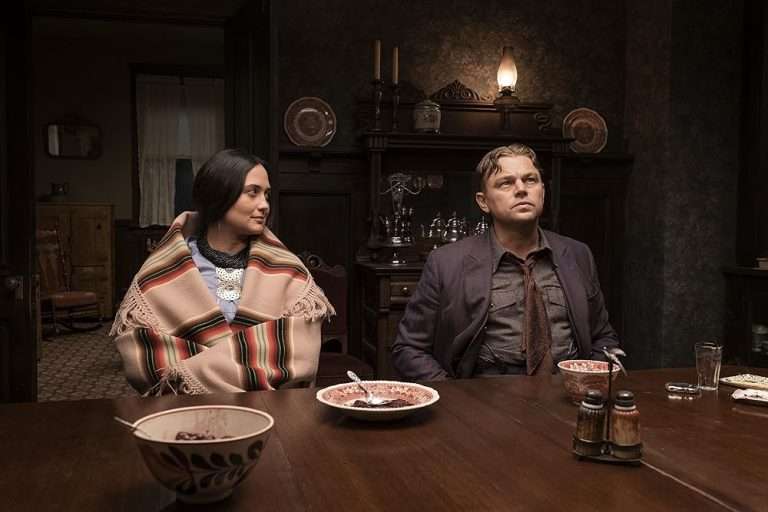Directed by Kiran Rao and set in the fictional state of Nirmal Pradesh, which echoes Uttar Pradesh, “Laapataa Ladies” or “Lost Ladies” primarily depicts how the veil, one of the chief constructs of patriarchal society, can make an auspicious occasion like a wedding go haywire. The veil, which is generally worn by a bride to signify her chastity and respect towards her husband and in-laws, rather proves to be a reason for the alleged dishonor.
The newlywed Deepak (Sparsh Shrivastava) and Phool Kumari (Nitanshi Goel) make a tedious journey to their village. However, they get married on an auspicious day and aren’t the only newlyweds. The chaos amidst the veiled brides leads Deepak to disembark from the train with the wrong ‘wife,’ the film hereafter unfurls the perils and scorns that Deepak, his family, his lost wife Phool, and Jaya (Pratibha Ranta), aka Pushpa (the incorrect bride whom Deepak brought home) have to go through in order to resolve the crisis.
Patriarchy is deeply ingrained into the crevices of Indian society and is most replete in parts of the country devoid of literacy. Though the film’s setting is 2001, twenty-three years later, the issues still potently persist. However, along with patriarchy, there are other bleak issues, such as corruption and the misery of the farmers at the hands of the Government, which the film subtly satirizes.
The two women are named Phool and Pushpa, meaning flower or blooming flower, which is a recurrent trope in the film. Even though Deepak’s village is named Suryamukhi, the inhabitants of the village play an incidental role in helping Pushpa, who is later revealed to be Jaya, to acquire the meaning of her own name, which means victory.
While Phool gets adopted by a gang of railway paupers, who are rich at heart, and becomes aware of economic self-sufficiency working with them, the progressive Pushpa enlightens the people of Deepak’s household regarding organic farming, camaraderie among women, and female agency. The three pivotal sequences from the film that explicitly explore the film’s themes are when Pushpa inspires Deepak’s sister-in-law, a woman in a long-distance marriage, to pursue her artistic talent by telling her, “Art is not useless, never take it for granted, lucky are those who are blessed with the gift of art.”
The other is when Jaya, aka Pushpa, compliments Deepak’s mother for her finesse in cooking and asks her, in between conversations, if women in the family can be friends. Then, there is the scene at the station when an innocent Phool asks the tea stall owner why women aren’t allowed to work.

The owner herself, being a victim of domestic abuse, replies that women are brainwashed into believing that their existence is rooted in men, and therefore, they are too scared to break free from the shackles. There are other sequences in the film that mock toxic masculinity. There’s a particular scene where this tea stall owner(Chhaya Kadam) who gives Phool refuge in her house while sharing with Phool her bitter experience of being a wife and motherhood delivers a punchline- “A man who loves you has the right to hit you?”
All the characters have their share of flaws in the narrative. However, they come to terms with the mistakes they have committed through their own epiphanic moments. One such moment is the evolution of the corrupt police officer(Ravi Kishan) who takes up the case of the missing bride, the chortling and pan-chewing police inspector who initially seems to be the greyest yet humorous character in the film. In the end, he uses the law to awaken his conscience, thus liberating a suppressed woman(Jaya) to soar high because it’s no crime to dream big dreams and go the extra mile to achieve them.
The writers and the director succeed in creating a well-knit satire, mixing it with wit. Their purpose is to subvert the stereotypical norms of society, be it wearing veils, and it doesn’t hinder the emotional quotient of the characters. It is in no way a preachy take on the flaws that plague our society, nor does the film strive hard to offer a solution through the transformation of the characters.
Rather, it thoroughly humanizes the characters. Phool, in the end, chooses to go back to her husband because she deeply loves him. She finds her empowerment in holding his hand and being financially independent by his side. Similarly, though the inspector doesn’t hesitate to accept the bribe offered to him by Jaya’s husband, he is against the abuse inflicted upon Jaya. Jaya isn’t depicted as a staunch feminist who is cynical enough to chase her dreams. She also apologizes for the suffering her actions have caused to Deepak and his family. Some films are simple, yet they have an everlasting impact on the audience because of their nuanced storytelling.
“Laapataa Ladies” is definitely one such film that can’t be grouped under the broad category of ‘feminist films’ but a film that narrates the story of people who are unimportant and ordinary just like us, a society whose inhabitants can never wholly absolve themselves from their preconceived notions. Therefore, it’s a film closely replicating the unchanged reality of our country, and the film has its own distinct vision, which, as a viewer, is quite nice to experience.



![The Legend of 1900 [1998] Review: Music. Passion. Life.](https://79468c92.delivery.rocketcdn.me/wp-content/uploads/2019/09/the-legend-of-1900-screenshot-1-768x326.jpg)


